Qalibaf: Martyr Soleimani was an artist / Haddad Adel: Imam said do not play sluggish music for people!
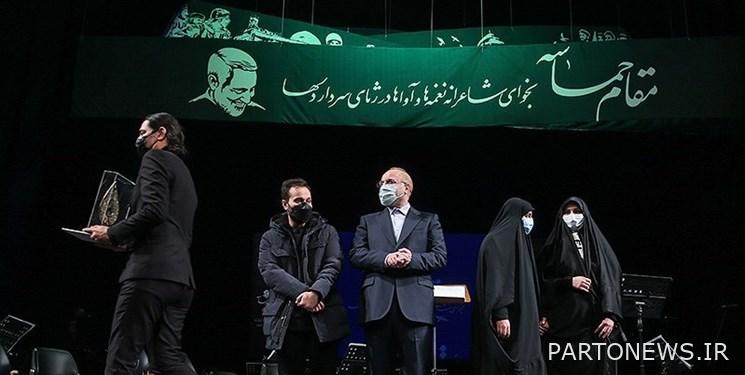
According to the Fars News Agency music correspondent, the “Epic Position” was held on the occasion of the second anniversary of the martyrdom of Sardar Haj Ghasem Soleimani, on Wednesday evening, December 29, 1400 in Vahdat Hall with performances by the Radio and Television Symphony Orchestra and Alireza Eftekhari and Salar Aghili.
At the beginning of the program, the Radio and Television Symphony Orchestra led by “Arash Amini”, singing “Amir Hossein Samiei”, performed Arvand “Symphony Poem” with the arrangement of “Arman Mehraban” in Vahdat Hall. The orchestra continues the program “From Khorramshahr to Quds”, “Nineveh of Love”, “Those Lovers of Sharza”, “Soldier”, “Homeland”, “Father”, “Fight” and “Conquest” to commemorate the second anniversary of the ascension of Martyr Soleimani Performed in front of the guests. This program was simultaneously covered by the Radio and Television of the Islamic Republic of Iran and other audio, visual and written media.
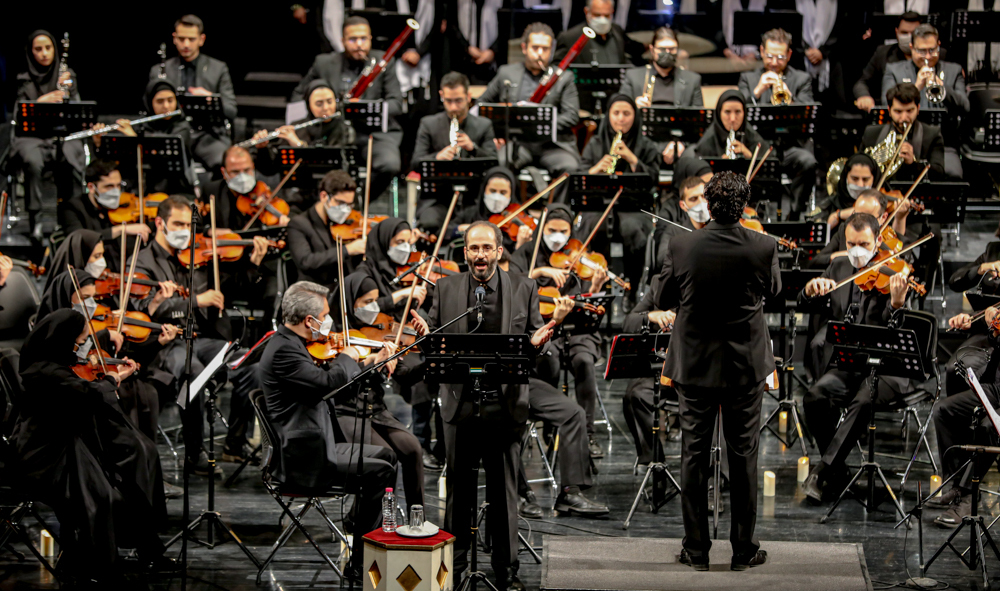
During the program, a Fars reporter asked Haddad Adel, “In recent days, there have been discussions about music. “What is music in such a situation?” In response, he said: I am quoting a memory from the late Imam. In 1979, when I was a member of the Supervisory Council of the Radio and Television, we came to serve the Imam in Qom with four other members of this council. I asked him, “What is your opinion about music on radio and television?” Imam (ra) said, play music that moves people. Do not play music that makes people lethargic. And in my opinion, this statement of Imam Khomeini (as) is enough to answer this question and the subject of music.
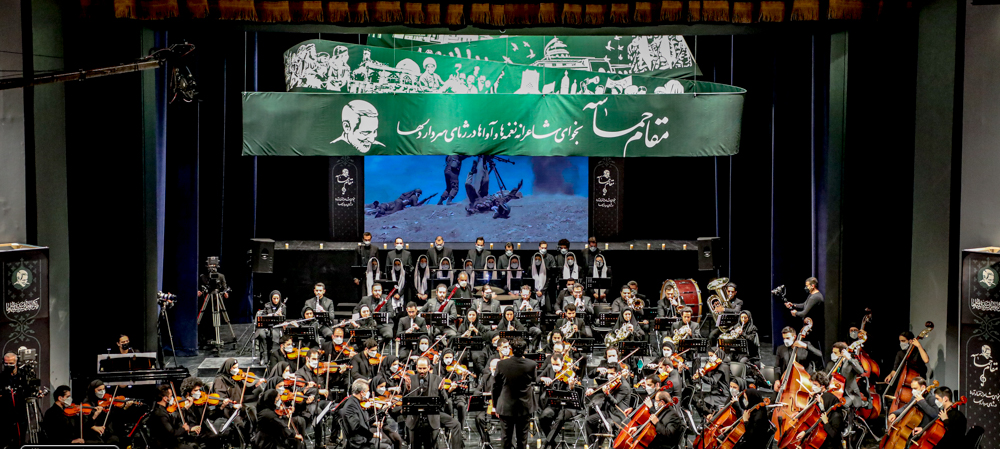
In the continuation of the program, Alireza Eftekhari, the singer of the well-known name of Iranian music, dedicated his first piece to the high spirit of Martyr Haj Ghasem Soleimani and performed an epic program in the mourning of that martyr Sardar.
After the music, the host invited Mohammad Baqer Qalibaf, Speaker of the Islamic Consultative Assembly, to speak.
While congratulating and condoling on the occasion of the second anniversary of Hajj Qasim’s martyrdom, Qalibaf said: “I offer my condolences for the fact that the people and we needed Hajj Qasim and now he is not among us.” And congratulations on the fact that the school of Imam Khomeini (as) congratulated such commanders who came from a deprived village in the south of Kerman, who, in the words of our dear Haj Qasem, used to say that in our childhood and adolescence we mostly worked barefoot and without shoes in the farm. we did. This revolution of this nation of our dear Iran provided such an opportunity for such a person to be deprived of a region and of a farmer family during the time of the holy defense. We saw it and congratulations on that.
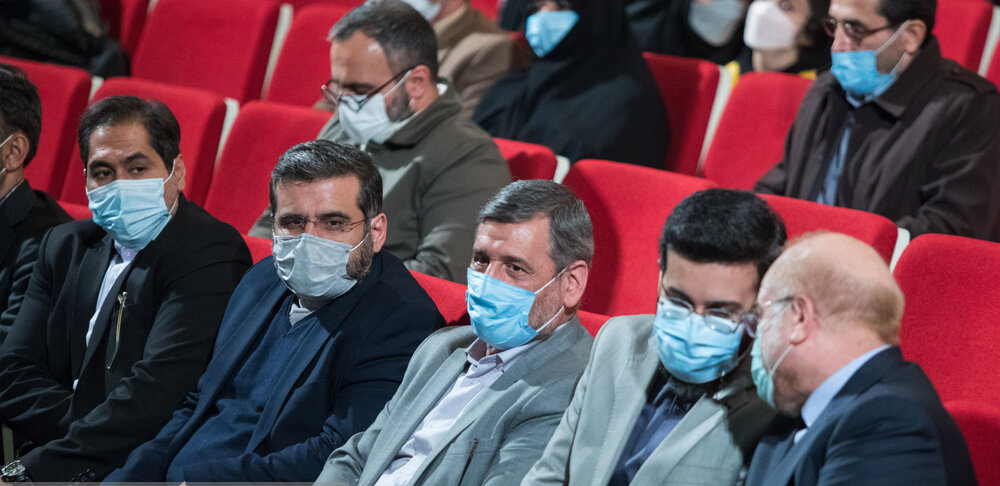
The Speaker of the Majles thanked the artists who performed the program in the mourning of Sardar Shahid and explained: This is how bravery is perpetuated. God willing, we will appreciate these committed artists who are such great assets for our country, and we will pave the way for their growth and example more than before.
Regarding the existential dimensions of Haj Qasim’s character, he mentioned this great martyr as an artist and said: And I also want to say that in fairness, Martyr Soleimani was also an artist. The man I am talking about was an artist who is a witness to the art of the men of God. In this regard, I would like to say that Martyr Soleimani was an artist who, far from political uproar and far from evil ostentation, spent forty years for this country, for this nation, for the defense of the oppressed, for the glory of Muslims and the revival of dear Islam in these forty years. Mujahideen did. In this regard, I say that Martyr Soleimani is an artist who rose from the hearts of the people and remained a people until the end, and Martyr Soleimani fought with the people all the time. Those who are familiar with Martyr Soleimani know that he never followed the views in the field of defense, military and security missions, equipment and facilities, and always lived and struggled with the people and defended the oppressed with the oppressed people. As we saw in the defenders of the sanctuary and as we saw in the time of the holy defense of him. Martyr Soleimani was an artist who, without being a jihadist and a man of the field and a man of difficult moments, did not hesitate for a moment.
He added: “Martyr Soleimani was an artist in this regard who was calm in the most difficult moments of the conflict, in the last moments when death was closest to him.” Martyr Soleimani was an artist who decided in difficult moments, moments that were close to death for seconds, but in making decisions calmly and calmly and away from any worries. Martyr Soleimani was an artist because he was never afraid because he only feared God. Martyr Soleimani was an artist because he was the sum of opposites. His anger rose from the heart of mercy. He was a critic, but he was also forgiving. Martyr Soleimani was a man of battle and struggle, but he was also a negotiator. Martyr Soleimani was gentle and oppressed, but powerful!
He added: Martyr Soleimani was brave, but this courage was accompanied by rationality and prudence. Martyr Soleimani was indeed an artist and a revolutionary in every sense, but a revolution in which there were two elements, reason and the covenant. If Martyr Soleimani was brave and fearless, if he was a patriot, if he was a governor, if he was a people, if he was a jihadist, and if he was a man of field, martyrdom and trust, he was an artist because he was a man of hope. He hoped in God. Martyr Soleimani was a man of God because he believed, “And the truth is above us, the victory of the believers.” That such art should be taken from the school of Soleimani, which is in fact the handiwork of the school of Imam Khomeini (as) and his soldier was the pride of this nation and the servant of these people, and he shed blood for these people and for Islam and this country and sacrificed his life and all He dedicated his life to the honor of the country and the Islamic Ummah, and we send greetings to these great people who performed, and martyrdom is the art of the men of God.
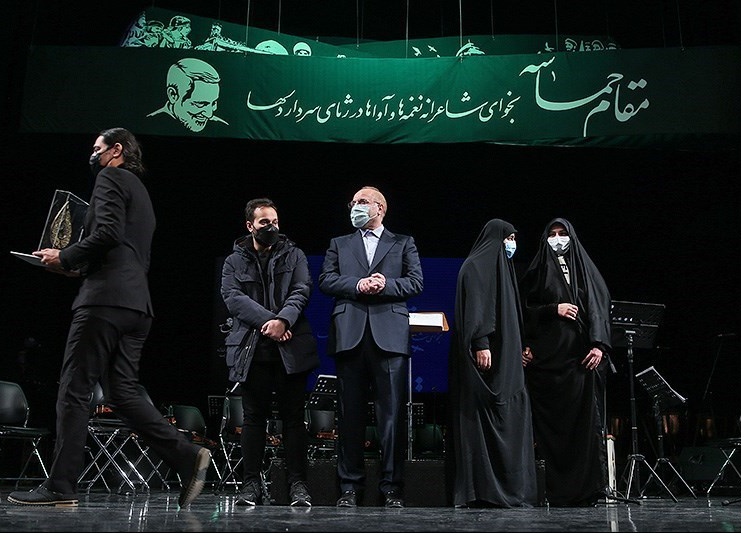
Following the program, Qalibaf came on stage with Sardar Soleimani’s three children to present a plaque of appreciation to the artists who created musical works in Haj Qasem’s mourning.
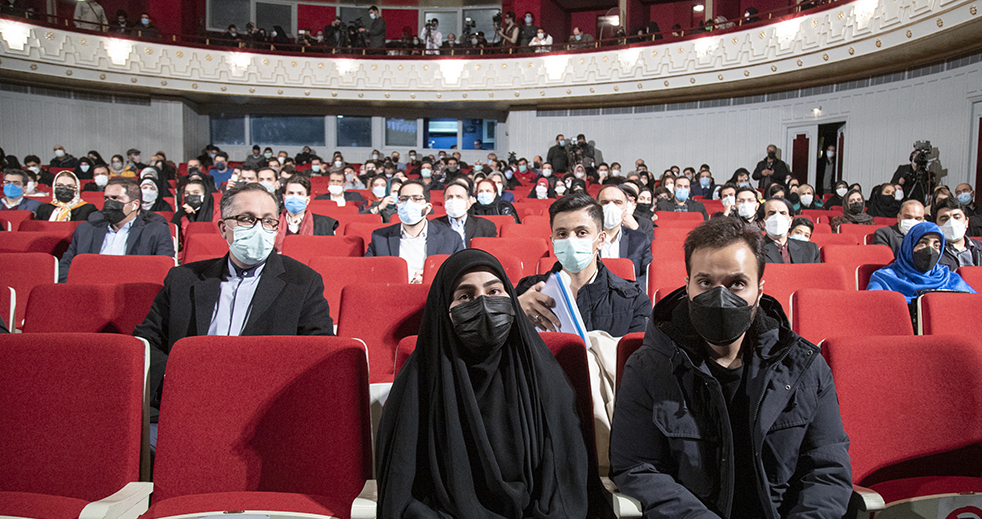
In this part, Alireza Eftekhari, the singer of “Mard Maidan”, Mohammad Motamedi for the song “Eshgh Ziba”, Arash Amini, conductor of the Radio and Television Orchestra, Razmik Ohanian, conductor of the choir, Mohammad Reza Aghili, conductor of the pop orchestra, arranger and composer of “Mard Maidan”, Mohammad Reza Cheraghali “Soldier” project manager, Amir Hossein Samiei, Arman Mehraban, composer of Soldier Symphony Poem, Omid Roshanbin, arranger, Bahram Payez, singer, Kian Moghadam, singer of “Malek Soleiman”, Erfan Erfanian, Director of Radio and Television Symphony Orchestra, Abdolreza Safaei, Amir Hossein Rezaeian The piece of testimony was appreciated.
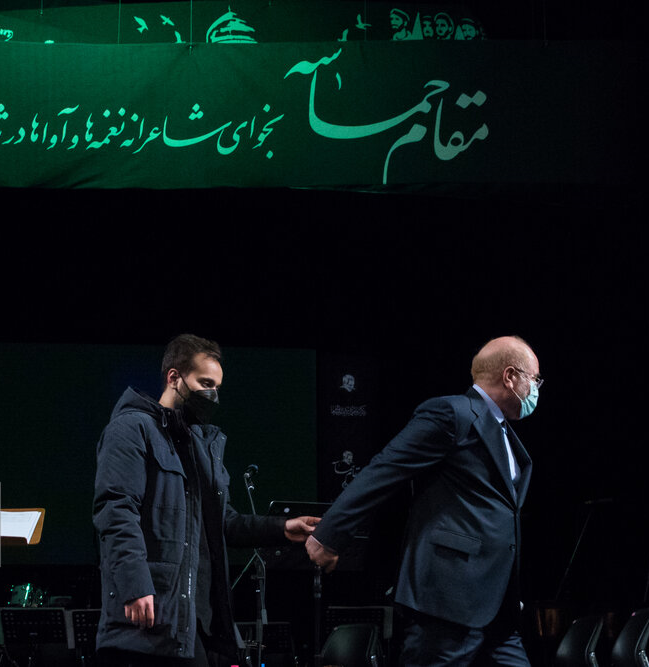
In the next part of the program, “Iqtedar” by Majid Entezami was performed with the singing of Salar Aghili and led by Mohammad Reza Aghili. Qasem Soleimani performed.
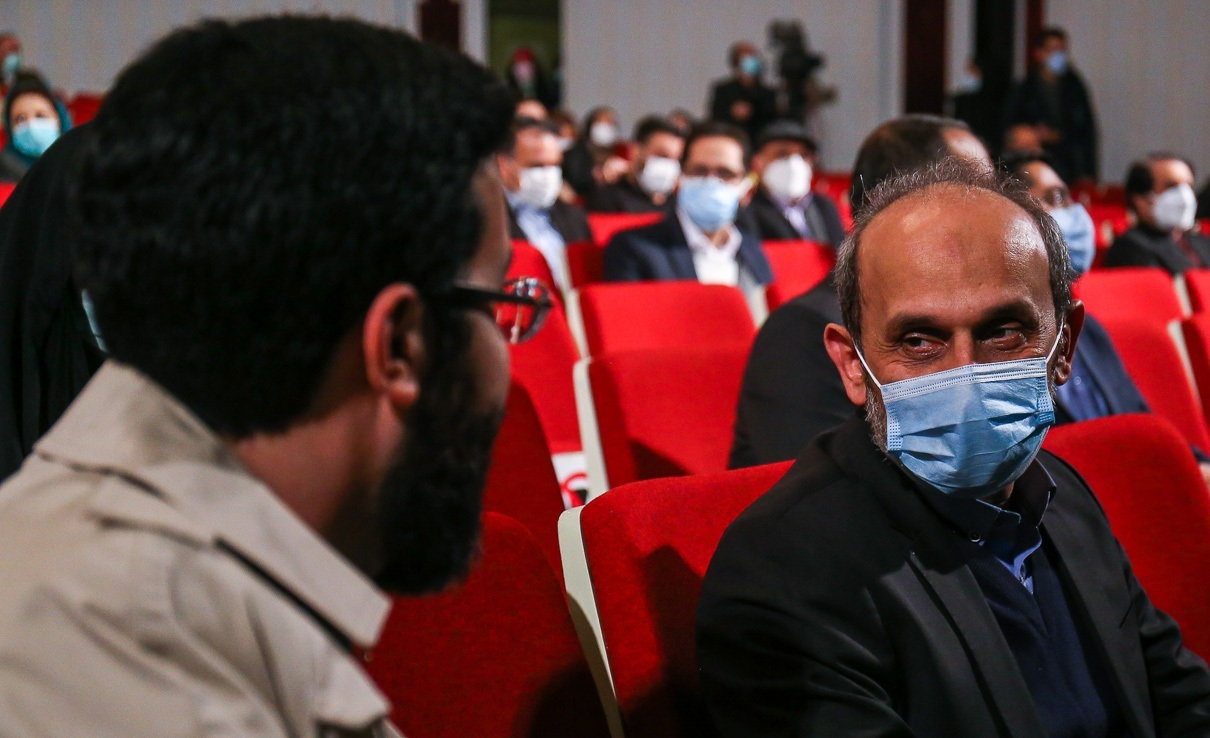
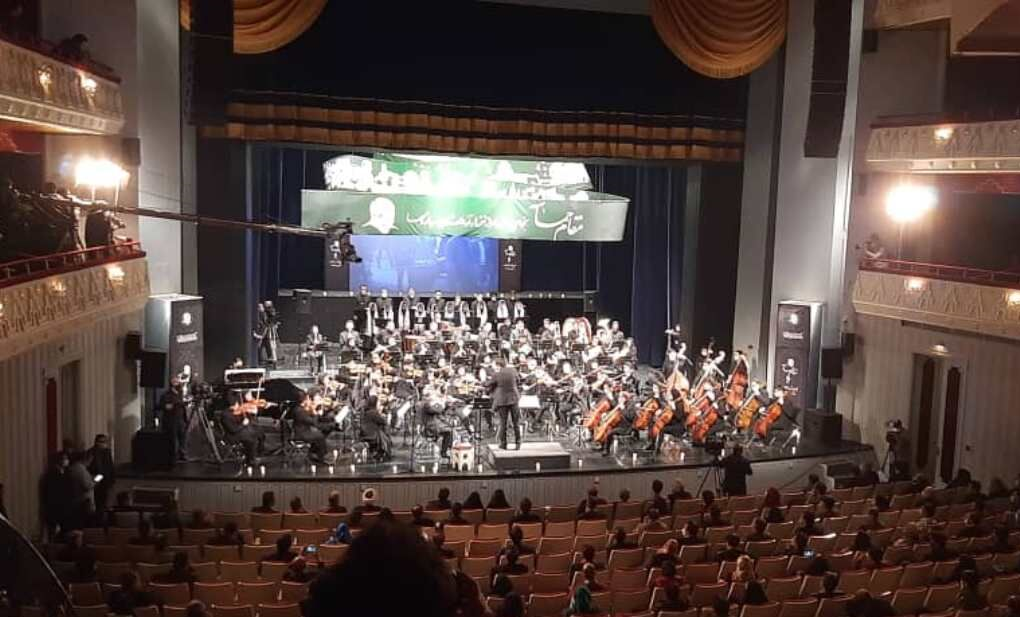
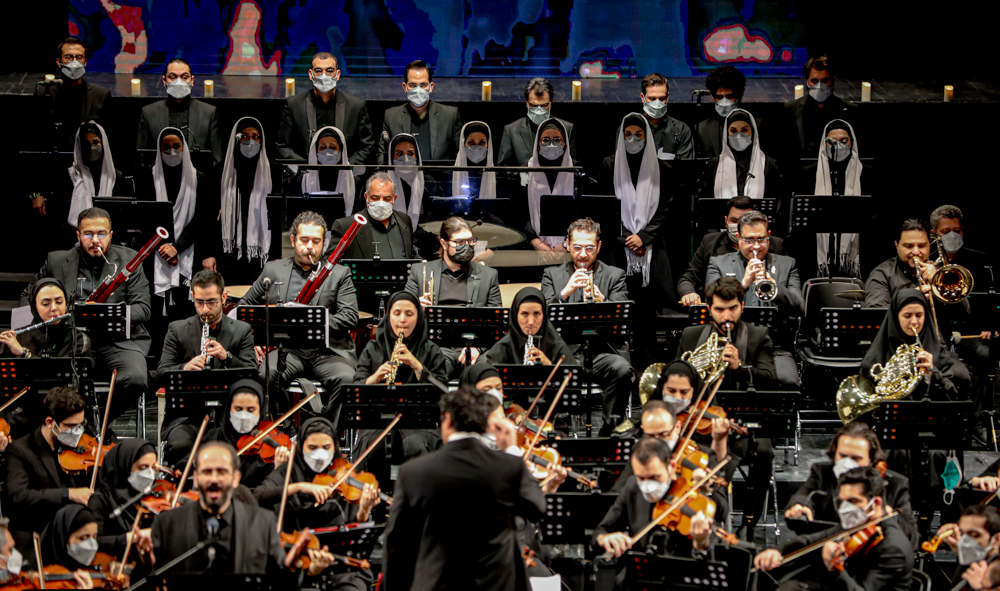
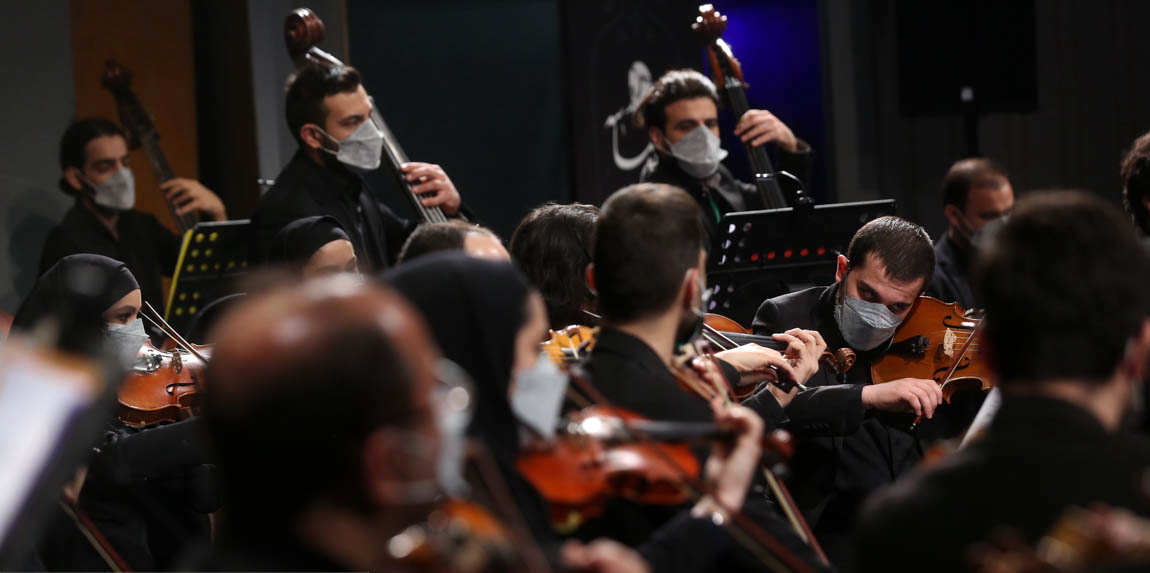
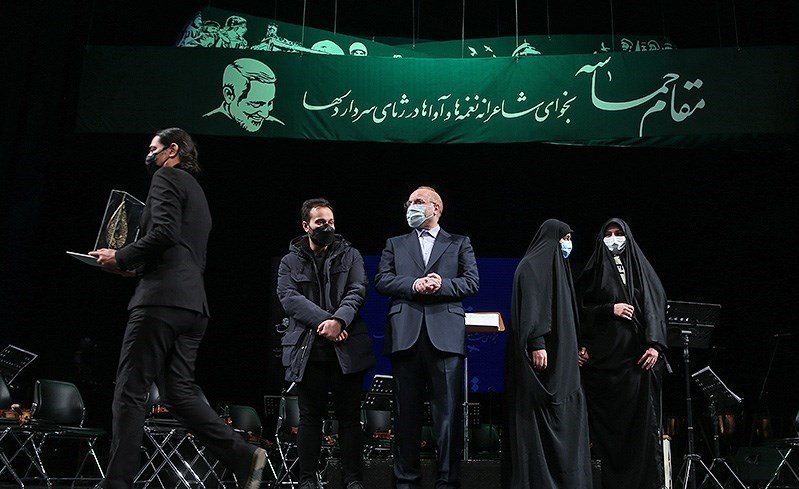
End of message /
You can edit this post
Suggest this for the front page
.

